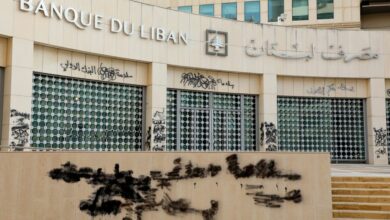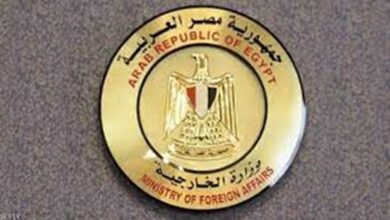Egyptian stocks tumbled the most in more than a year and bonds fell after thousands took to the streets of Cairo and other cities yesterday in protests against the government of President Hosni Mubarak.
The benchmark EGX30 index slid 6.1 percent, the most since November 2009, to 6,310.44 at the 2:30 p.m. close in Cairo, extending its drop this year to 12 percent. Orascom Construction Industries, the North African country’s largest publicly-traded builder, tumbled 7 percent. Egypt’s stock market was shut for a holiday yesterday. The cost to insure against the country’s debt rose to the highest since June 2009 and the pound weakened.
The protests, rare in their size in Egypt, were inspired by a popular revolt that forced Tunisia’s President Zine El Abidine Ben Ali into exile on Jan. 14. A policeman and two protesters died in clashes yesterday, state-run Nile TV reported, citing an unnamed interior ministry official. One protester also died in the city of Suez from injuries sustained yesterday, Dubai-based Al Arabiya television reported, without saying how it obtained the information.
The stock market decline is a “quick reaction” to concern about the political situation, Angus Blair, head of research at Beltone Financial, a Cairo-based investment bank, said by telephone. “We shouldn’t take the fact that because there are demonstrations in Egypt that it will go the same way as Tunisia. But I certainly think that people have been given courage to ask more questions of their leaders.”
Tunisia’s uprising began in December after a 26-year-old set himself on fire following a dispute with local officials. The demonstrations after his death turned into protests against perceived corruption and human rights violations. The risk of Tunisia’s unrest spreading to other countries in the region “is not negligible” analysts at Barclays Capital said this month.
The 82-year-old Mubarak, in power since 1981, hasn’t publicly said whether he will run for re-election when his term ends this year. Opposition groups, including the Muslim Brotherhood, say the president is grooming his politician son Gamal Mubarak to succeed him, a claim both men deny.
The Interior Ministry said it won’t allow protests today, according to a statement on its website. Truckloads of riot police were deployed in central Cairo.
Orascom Construction, slumped the most since November 2009 to 254.38 Egyptian pounds. Orascom Telecom Holding SAE, the Middle East’s biggest mobile-phone operator by subscribers, fell 6 percent to 3.95 pounds, the lowest level since March 2009. Commercial International Bank SAE, the country’s largest publicly-traded lender, fell 3.3 percent to 40.07 pounds.
Egyptian bonds dropped, with the yield on the $1 billion 10-year government bond maturing in April 2020 rising 7 basis points to 5.89 percent, according to prices on Bloomberg. The yield soared to a record of 6.03 percent on Jan. 17, the first trading session after Ben Ali’s ouster.
Credit default swaps rose 15 basis points today to 344, the highest since June 2009, according to CMA prices. The contracts conceived to protect bondholders against default pay the buyer face value in exchange for the underlying securities or the cash equivalent should a borrower fail to adhere to its debt agreements. An increase indicates deterioration in the perception of credit quality.
London-based Barclays, as well as Cairo-based investment banks EFG-Hermes Holding SAE and CI Capital, have forecast the pound will drop against the dollar this year. The pound fell 0.3 percent to 5.8330 per dollar.
Investors in Egypt need to reconsider whether their money is safe in the country, said opposition leader Mohammed ElBaradei, the 2005 Nobel Peace Prize winner and former United Nations atomic agency chief.
“The country’s going through a period of instability and if you’re an investor you don’t want to invest there,” ElBaradei said late yesterday in an interview. “Foreign investors are not coming forward. The writing has been on the wall for the last few years.”
Egypt attracted $6.7 billion in foreign-direct investment in the fiscal year that ended in June, compared with $8.1 billion in the previous 12 months, the central bank said in September.
Foreign investment to Egypt may slow this year as investors take a “cautious” view on the country before a presidential election this year, Oliver Bell, London-based senior investment manager at Pictet Asset Management Ltd., said in a Jan. 20 interview.




